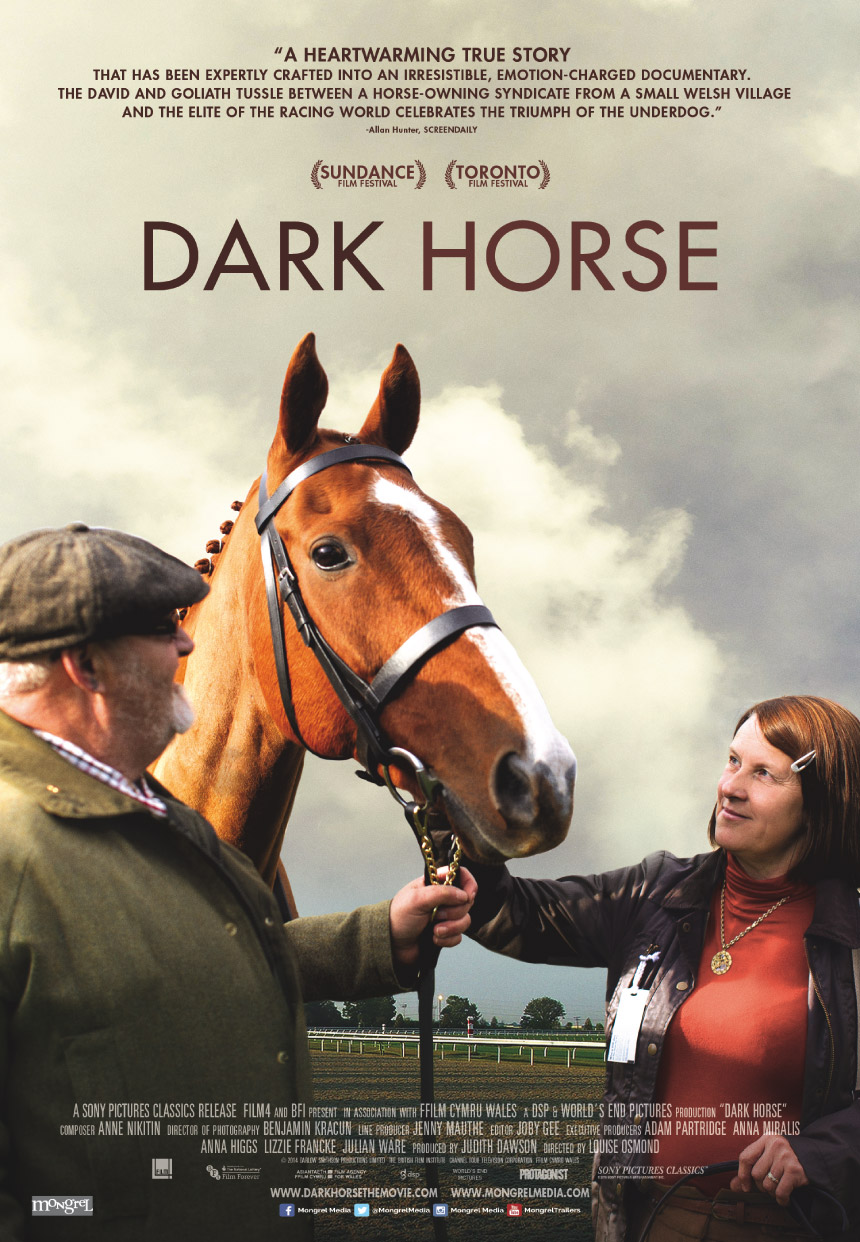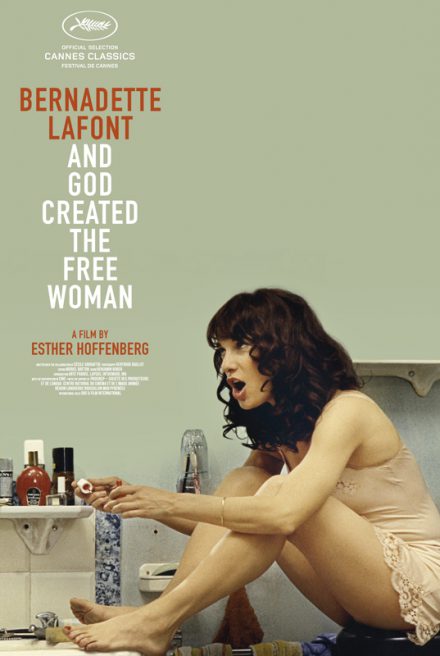
Dark Horse: The True Story of Dream Alliance
(UK, 2015)
director: Louise Osmond
I have a particular soft spot for British underdog movies. You know the ones I'm talking about: Billy Elliot, The Full Monty, Made in Dagenham. Those are fictional or at least fictionalized narrative films, but even though Dark Horse is a documentary, it bears remarkable resemblance to those other movies.
In 2000, a Welsh woman named Jan Vokes convinced 30 of her fellow villagers to form a syndicate and pool their money together to breed and raise a racehorse. As her husband notes, once Jan has put her mind to something, you can't stop her. And thus begins the story of Dream Alliance, the horse who came from dubious stock and was raised on an allotment, but went on to remarkable success.
The movie makes good use of Jan and her fellow owners' considerable charm. They are fully aware that the world of horse racing is generally reserved for the wealthy and the titled. Part of their pride comes from being working class and having stood up against the snobs--and proving themselves to be as good if not better. There are some very amusing interviews where the top class trainer the syndicate chose for Dream Alliance admits to his initial skepticism and patronizing thoughts about the horse's chances of ever running in a real race, never mind winning. His account of his change of heart is very touching and genuine.
That is actually a good way to describe this movie overall: touching and genuine. I thoroughly enjoyed it and had a smile on my face when I left the theatre. Definitely recommended.



